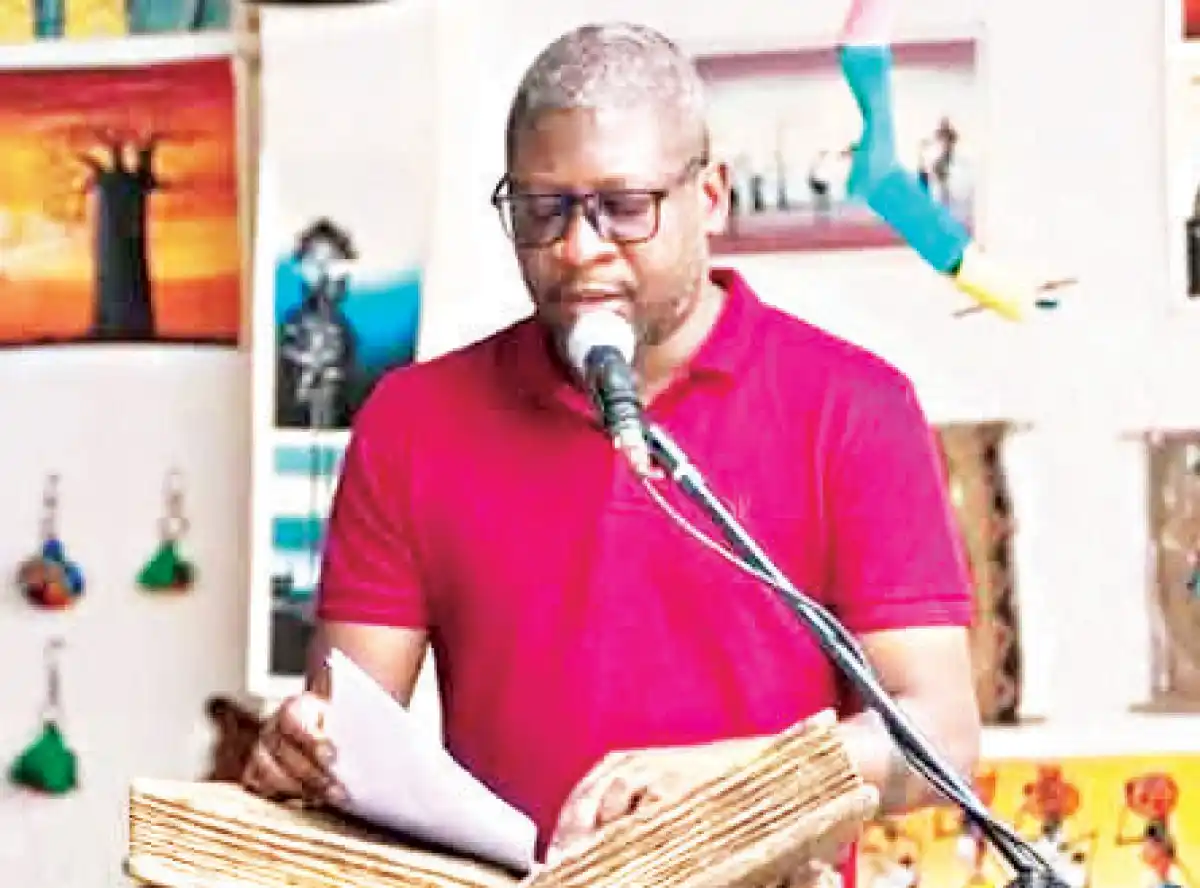

Celebrated poet Q Malewezi has been in the creative realm for years. He has inspired and entertained many with his verses. Currently, he is President Lazarus Chakwera’s special advisor on creative industries. SAM BANDA JNR speaks to him in this exclusive interview.
Firstly, let’s look back; what led you to fall in love with art?
Looking back, my love for art was shaped by my upbringing. When I was about nine years old, my dad taught me how to play the guitar, and later, my sister as well. Music became a natural part of our family life. My brother was incredibly talented at drawing, and I admired his skill, though I quickly realised that my strengths lay elsewhere. So, I focused on music instead. Later, my grand uncle, who played the organ at Maula Cathedral, introduced me to basic music theory, which deepened my understanding and appreciation of music. Being surrounded by so much artistic talent, it felt inevitable that I would fall in love with art in all its forms.
Is this what you wanted to do or there was something that your parents wanted for you?
My parents always encouraged us to follow our passions and trusted us to find our own way, but they also provided guidance when it was needed – especially for me, when my passion sometimes became a distraction. My brother studied art, which inspired me even further, and seeing his journey reinforced the importance of pursuing what I love. At one point, I thought I might study architecture – that was my own interest – but ultimately, the creative path has always felt like my true calling. Exploring and discovering myself across different artistic disciplines has made the journey incredibly fulfilling.
You are now the special advisor to President Lazarus Chakwera on creative industries. How has the holding of this position helped to drive your artistic agenda?
For years, I have been passionate about advocating for the arts. I have sat on taskforces, contributed to policy discussions, and pushed for changes that could create real opportunities for creatives in Malawi. So, stepping into the role of Special Advisor on Creative Industries feels less like a new job and more like an extension of what I have always done – only now, I have a direct line to influence decisions at the highest level. What makes this even more meaningful is working with a president who genuinely values the creative sector. Last April on World Art Day, the President made a promise to ensure that the long awaited National Arts and Heritage Council Bill would finally be tabled in Parliament. And he kept that promise. Beyond that, he took time to sit with industry leaders, not just to listen but to understand the sector’s contribution to the economy and the challenges creatives face every day. For me, this role is about more than policy, it is about making sure that artists, musicians, writers, and cultural practitioners are seen, heard and supported. It is about ensuring that creativity is not just appreciated but recognised as a key driver of Malawi’s future.

You have engaged fellow creatives, listened to their voices, what are some of their needs and where are the gaps?
Malawi’s creative sector faces significant challenges despite its wealth of talent. Key concerns raised by the creative community include a lack of funding and structured support, forcing many to rely on personal resources, high equipment costs worsened by import duties, a shortage of affordable recording studios, performance venues, and production hubs, and limited market access due to weak distribution channels. A major issue is the country’s lag in monetisation, which affects revenue generation from online streaming platforms like YouTube, despite high engagement numbers.
You are also heading Kweza Arts. What inspired this?
Kweza was inspired by the need for spaces that truly support and value artists and creative practitioners. It came from my desire to create opportunities for collaboration and co-creation. Before starting Kweza, I ran Concept Creative, which was known for bringing international artists to Malawi. But over time, I felt a strong shift in direction. I realised that while bringing outside talent was valuable, what we really needed was to focus on building structures that would help nurture and elevate authentically Malawian artistic brands. That conviction led to the creation of Kweza – a space that is not only about showcasing talent but also about supporting and empowering local creatives to thrive and collaborate.
Let us come to your personal work, you have announced the release of a memoir in April this year; take us through this memoir, what inspired it?
My memoir No Dad Club was born from my own experience of losing my father and the emotional journey that followed. During that time, I realised there was not much out there to help people navigate the specific challenges of losing a parent or loved one. I wanted to create something that would make others feel seen and understood, knowing that they are not alone in this kind of grief.
What are the stories in there and what does it feel to have this work?
The memoir has different stories on my journey with grief. There are moments of deep sadness, like the day recounting the events before his passing, there are stories of quiet anger like when I had to deal with unjust societal expectations. But there are also moments of light – laughter at memories, the warmth of unexpected support, and the strange but beautiful ways my dad still feels present in my life. I talk about the pressure of carrying a legacy, the triggers that sneak up on me, and the decision to break tradition by making unconventional decisions. Writing the memoir was a heavy process but I had to do it for myself, my family and everyone who has experienced deep loss. There is a sense of relief and it feels like a milestone in my journey.
Lastly any other comments you can make as regards art and other related issues?
Art is many things to many people. For some, it is a career – a way to make a living and build something lasting. For others, it is a form of release, a way to make sense of the world or simply to feel something deeply. People consume art for just as many reasons – to escape, to connect, to learn, or just to enjoy a moment of beauty.
And that is the thing about art – it does not have to fit into one box. It does not have to be ‘useful’ in a traditional sense to be valuable. It does not have to be profitable to matter. We need to make room for people to create and experience art in whatever way speaks to them, without judgment or expectation. Because at its core, art is about expression, connection, and meaning – and those things will always be bigger than any one definition.








0 Comments